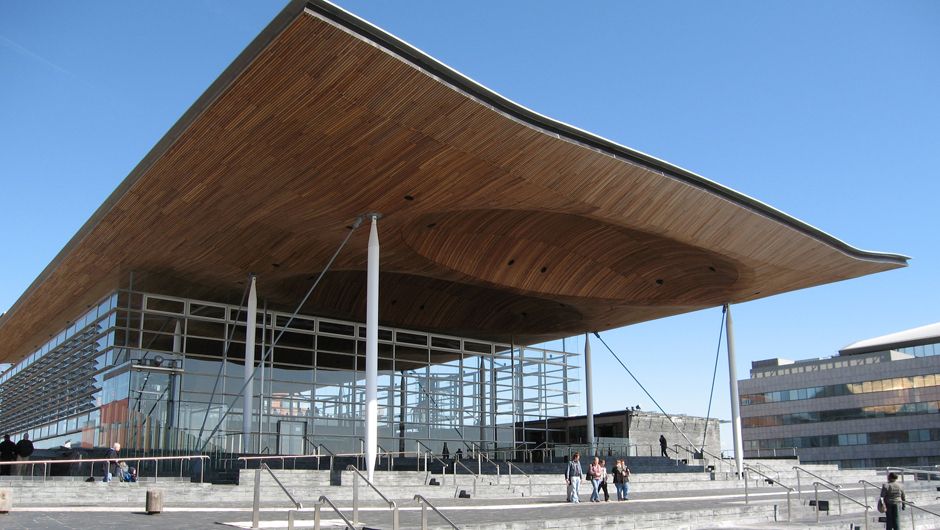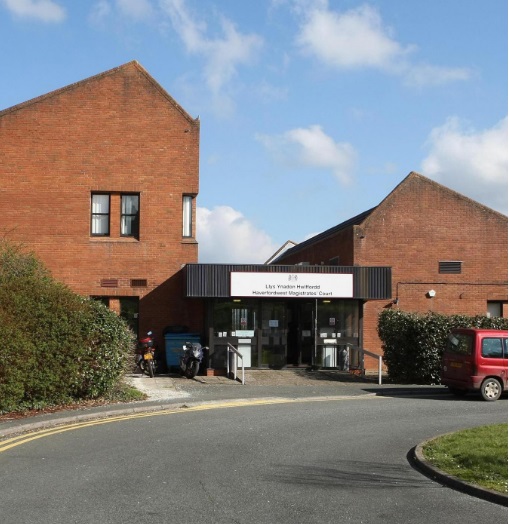News
Saint’s ‘potential contemporaries’ unearthed
 DYFED ARCHAEOLOGICAL TRUST has revealed that skeletons buried at St Patrick’s Chapel in the Pembrokeshire Coast National Park may have belonged to contemporaries of St David.
DYFED ARCHAEOLOGICAL TRUST has revealed that skeletons buried at St Patrick’s Chapel in the Pembrokeshire Coast National Park may have belonged to contemporaries of St David.
The Trust carried out a three-week dig as part of their third and final year of excavation at the chapel in Whitesands Bay in May.
The dig unearthed signs that the medieval religious site was used before it was a chapel, and the remains discovered underneath may date back to a time before written records.
A number of the Christian burials found during the excavation are dated back to the early sixth century AD, a time when the now patron saint of Wales, St David, was a bishop.
Supporting the excavation was the Pembrokeshire Coast National Park Authority. Cultural Heritage Manager for the Authority, Phil Bennett, said: “Without doubt some of the people buried in St Patrick’s Chapel would have been contemporaries of St David – they might even have known him.
“They were not necessarily compatriots though. Research by the University of Sheffield on skeletons from similar sites in Pembrokeshire revealed that some of the people buried in them were not local but came from Ireland and continental Europe. Initial results from St Patrick’s Chapel suggest a similar pattern, making Whitesands Bay rather cosmopolitan.”
400 years ago, the chapel was in ruins, and nowadays there is no trace of it on the surface. However, harsh storms have regularly exposed graves containing human bones at the site for a number of decades.
In an attempt to make the erosion cease, over twelve years ago Pembrokeshire Coast National Park Authority placed boulders against the site. This proved a success until the boulders were washed away by massive storms in January 2014, leaving more burials exposed. An agreement was made that declared an excavation on the area of the site most vulnerable to erosion would be the best course of action; any further attempts to protect the site would simply prove futile.
In the relatively small area that has been excavated, nearly 100 skeletons have been unearthed. Some of these were laid in graves lined and capped with stone slabs, a traditional burial design in Western Britain between the sixth and 11th century AD. Christian tradition dictates that the head of a buried body should point to the west, and indeed the remains were found in this manner, aligned east to west.
The archaeologists made a particularly incredible discovery, as they found a stone cross fixed at the edge of one grave; a discovery that marks the first time in Britain that a stone-lined grave has been found in association with an upright cross.
A rather poignant discovery made by the archaeologists found that the majority of skeletons belonged to children.
Director of the Dyfed Archaeological Trust, Ken Murphy, said: “Many of the graves uncovered were those of children and were touchingly decorated with sea shells and shiny quartz pebbles. Two of the children’s grave stones had crosses scratched onto them. You can picture the tenderness felt by those involved with the burial.”
Acidic soil prevalent in most of Wales results in the quick decay of bone, but St Patrick’s Chapel is situated on top of wind-blown sand which has helped to preserve the bones.
Two skeletons were found buried face down, which raises the question if they were criminals or deviants of some sort. However, regardless of those questions, the remains were buried on sacred ground in a Christian cemetery.
Ken Murphy concluded: “This excavation has given us some really important information about the lives, beliefs and practices of people living in Wales over 1,000 years ago.”
News
First step towards council tax and business rate reform

MAJOR reforms to council tax and business rates have cleared the first hurdle in the Senedd.
MSs backed the general principles of the local government finance bill, which would introduce a five-year cycle for council tax revaluations from 2030.
The bill would lay much of the groundwork for Welsh Government proposals to redesign council tax, with current bands based on property values from 2003.
It would also increase the frequency of business rates revaluations from five to three years.
Rebecca Evans told the Senedd the bill forms a vital part of the Welsh Government’s wider programme of local tax reform.
Wales’ finance minister explained the bill would enable ministers to modify business rate relief exemptions and the multiplier to support policy priorities.
John Griffiths outlined the local government committee’s stage-one report recommendations aimed at improving the bill and guarding against unintended consequences for taxpayers.
Mr Griffiths explained that the bill provides a framework for future policy changes to be made by the Welsh Government via secondary legislation.
The Labour MS, who represents Newport East, said the committee heard concerns that this limits opportunity for public engagement and scrutiny by the Senedd.
Welcoming the Welsh Government’s commitment to retaining the single-person council tax discount at 25%, he highlighted wide-ranging powers in the bill over vital reduction schemes.
In terms of business rates, the committee chair said MSs heard broad support for a move to three-yearly revaluations, which he described as a reasonable, proportionate cycle.
Peredur Owen Griffiths, who chairs the finance committee, backed the bill’s key aim to create a fairer, more flexible system.
The South Wales East MS welcomed reassurances from the Welsh Government that the intention of council tax reforms is not to raise more revenue.
“Given the regressive nature of council tax, we support the aim to make it fairer without affecting the tax base,” he said.
Plaid Cymru’s finance secretary said the proposed powers will reduce the Welsh Government’s reliance on UK bills to make changes.
Alun Davies, a Labour backbencher, warned that delegated powers in the bill risk diminishing the role of the Senedd.
Sam Rowlands, the Tories’ shadow local government secretary, raised concerns about the bill putting more power in the hands of the Welsh Government rather than councils.
He warned the bill is a stepping stone towards higher taxes through the back door, saying: “This bill in and of itself does not necessarily do that but it certainly enables future changes.”
The former leader of Conwy council, who represents North Wales in the Senedd, called for reforms to the formula used to allocate funding to Wales’ 22 councils.
Raising concerns about digital exclusion, Mr Rowlands opposed a provision in the bill which would remove a duty to publish council tax notices in local newspapers.
He said: “We believe it’s a really important part of the democratic process in local government, especially in relation to transparency.”
Backing a revaluation of all 1.5 million properties in Wales, Labour MS Mike Hedges described council tax as fundamentally unfair.
He said: “Someone living in a property worth £100,000 pays around five times as much council tax relative to the property value as someone living in a property worth £1m.”
Mr Hedges, who represents Swansea East, also opposed the removal of the duty to provide council tax information in newspapers.
On business rates, he said: “I’ve always supported the returning of them to local authorities. We don’t need an all-Wales system; let each local authority set its own business rates.”
Ms Evans told the chamber she intends to make a statement on the next steps for council tax reform before the summer recess.
The Senedd agreed the general principles of the reforms without objection, and the bill now moves to stage two which will see MSs consider detailed amendments.
News
Senedd backing for major infrastructure approval changes

THE SENEDD agreed reforms aimed at streamlining the consenting process for significant infrastructure projects in Wales.
MSs passed the infrastructure bill, which will establish a unified process, known as infrastructure consent, for major on and offshore projects.
Infrastructure consent will replace existing procedures for energy, transport, waste, water and gas projects above a certain size or capacity threshold.
Julie James, Wales’ housing, local government and planning secretary, argued the bill will introduce a modern and simplified process.
She said the bill will play an important part in moving towards net-zero emissions by 2050 by enabling consent for renewable energy projects in a timely but robust manner.
She told MSs: “Not only will it improve the competitiveness of Wales as an attractive place for investment and jobs, it will also empower local communities and other key stakeholders.”
Ms James said it is a “process bill” with much of the detail to follow in secondary legislation and a significant amount of work ahead to ensure a smooth implementation process.
She told the chamber that secondary legislation will ensure the infrastructure consenting process operates effectively, efficiently and with maximum engagement.
She explained that two consultation papers will be issued by late May, with the first focused on pre-application consultation processes and the second centred on fees.
A third and final consultation paper will follow this year outlining the whole new process.
Janet Finch-Saunders, the Conservatives’ shadow secretary, described the reforms as hollow and lacking in fundamental details.
She argued this is in complete conflict with the bill’s core aims of delivering a streamlined process and empowering communities to engage.
Ms Finch-Saunders warned that the bill is missing a vast amount of details, including on how open-floor hearings will be triggered and time limits for making decisions.
She said: “It is apparent to any reasonable person that this bill does not represent anywhere near what it promises to do, and that is a streamlined and unified process.
“The reality is that so much information is omitted that we do not know how these processes are going to work in reality.”
The Aberconwy MS added: “Clearly, the legislation is not as I believe it should be. We do not believe that it delivers a robust process for Wales.”
Delyth Jewell stressed the importance of striking the right balance between tackling the climate emergency and safeguarding the natural world.
Plaid Cymru’s deputy leader said planning processes must be more accessible to the public.
“Too often communities are left feeling disenfranchised and marginalised when decisions about infrastructure are made without their say,” she warned.
Calling for a coal-free future for Wales, Ms Jewell reiterated her party’s calls for coal to be removed from the list of significant infrastructure projects in the bill.
The South Wales East MS said: “We will keep pushing for a number of changes in regulations. But passing the buck and allowing this bill to fail would be a retrograde step.
“Let this be the first step in a journey towards democratising our planning process. There’s an awful lot more that we need to do, but it can at least start here.”
Ms James reiterated that many details were deliberately not included “on the face of the bill”.
She said: “If you were to put that into primary legislation, it would become out of date so fast that it wouldn’t make the end of the year.
“So, it is very important that we put those things in secondary legislation.”
Before the debate could be held, the King’s consent had to be sought because the bill could impact the Royal Family’s interests, such as the Crown Estate.
MSs agreed the stage-four vote on the final text of the bill, with 36 in favour and 15 against.
The infrastructure bill now enters “post stage four”, a four-week period during which it could be challenged by the UK Government but it is expected to move on to Royal Assent.
Crime
Recycling company brought before Judge after JCB crushes employee

A PEMBROKESHIRE-BASED recycling company has been brought before a district judge after an employee was seriously injured by a JCB loading shovel.
TBS Recycling and Skip Hire appeared before Judge Mark Layton at Haverfordwest magistrates court earlier this week when company director, Steven Thomas, pleaded guilty to failing to discharge general health, safety and welfare duties to an employee.
The incident occurred on March 31, 2021, at the TBS recycling and skip hire unit which is situated at the Waterston Industrial Estate, between Neyland and Milford Haven.
“An employee of the company was working on the site when he spotted something caught in the wheel of a four-ton JCB,” commented a lawyer for the Health and Safety Executive.
“He went to clear it and the person who was in the [JCB] driving seat knew he was doing it. But he was distracted and believed the other employee had left. So he lowered the shovel, but it crushed him.”
As a result, the employee sustained crushed ribs and damage to his lungs and breathing.
“But he’s since made a good recovery,” said the Health and Safety Executive lawyer.
Steven Thomas, of Cross Farm, Walwyns Castle Road, Ties Cross, will be sentenced by Judge Layton when he sits at Llanelli Magistrates Court on June 6.
-

 Business2 days ago
Business2 days agoBluestone National Park Resort payments expected to end
-

 Community4 days ago
Community4 days agoThe Harbourmaster: Special rail excursion draws crowds to Milford Haven
-

 News3 days ago
News3 days agoDragon LNG ‘monitoring’ scrap car blaze in Waterston
-

 News3 days ago
News3 days agoSearch for Luke, 19, reported missing in the Pembroke Dock area, continuing
-

 News12 hours ago
News12 hours agoSearch for missing teenager Luke continues at Pembroke Dock
-

 News5 days ago
News5 days agoMajor search in the area of The Cleddau Bridge and Hobbs Point
-

 Crime2 days ago
Crime2 days agoEstate agents admit health and safety failings following fatal market incident
-

 News18 hours ago
News18 hours agoMan jailed after scarring police officer in Narberth altercation


























